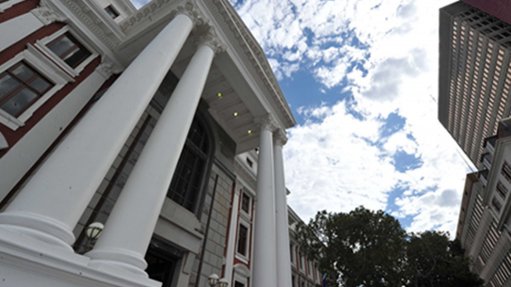
The statutory body mandated to advise the Minister of Higher Education and Training on Tuesday in Parliament differed with the majority of stakeholders in regards to the Higher Education Amendment (HEA) bill.
The Council on Higher Education (CHE) – a statutory body established under provisions of the Higher Education Act – made its oral submission on the HEA bill, addressing Parliament’s Portfolio Committee on Higher Education and Training.
Unlike three of the four other stakeholders who made submissions on Tuesday, CHE welcomed most of the controversial proposed amendments such as transformation goals and oversight mechanisms, ministerial directives, and the deployment of an independent assessor.
CHE said it noted the “intention and spirit” of the provision for the minister to determine transformation goals and institute oversight mechanisms, this is in contrast to the concerns raised by the likes of the University of Cape Town (UCT) and the South African Parastatals and Tertiary Institutions Union (SAPTU).
“It has become clear that left to their own devices, higher education institutions may not accord this key goal the urgency it deserves,” said CHE.
However, said CHE, continued perceptions of the lack of transformation had created conditions for “disruptive student protests and restive staff”. Thus, the proposal of an oversight mechanism was welcomed by CHE, while cautioning that this should be consistent and transparent to all parties.
In terms of the ministerial directives and the independent assessor and/or administrator, CHE said that the capacity for speedy intervention was needed to prevent irreparable damage. UCT, SAPTU, and the Catholic Institute of Education (CIE) all raised concern in this regard, mainly in relation to institutional autonomy and academic freedom.
The CHE however remarked: “We do not read in them [the amendments] an intention to dilute the academic freedom and independence in teaching and research functions, which we believe are central to what universities stand for and value most”.
The CHE also said it supported the provision for suitable private higher education institutions to register and operate as universities or university colleges.
Concerns by the CHE also differed to those asserted by SAPTU, UCT, and the CIE. Most notable among their concerns was the proposal that the Higher Education Act be subordinate to certain provisions of the National Qualifications Act. They also raised a concern with private higher education institutions, saying that if they registered as universities or university colleges they needed to have senates.
CHE, UCT, SAPTU, and CIE were also joined by the Higher Education Transformation Network in presenting oral submissions to the committee. Public hearings would continue on Wednesday.